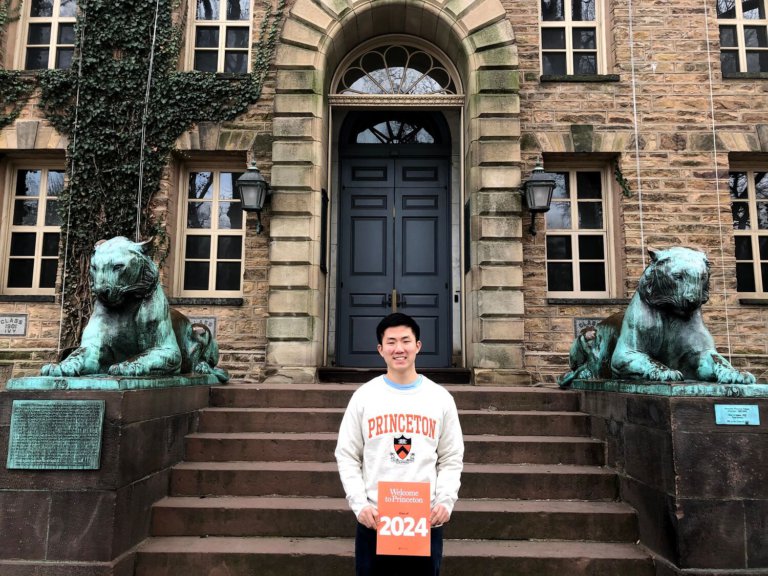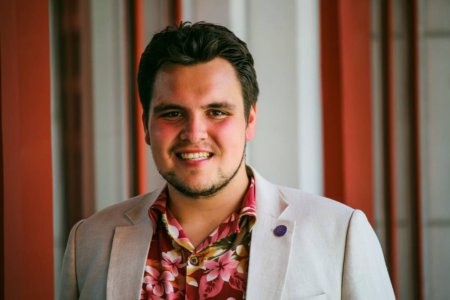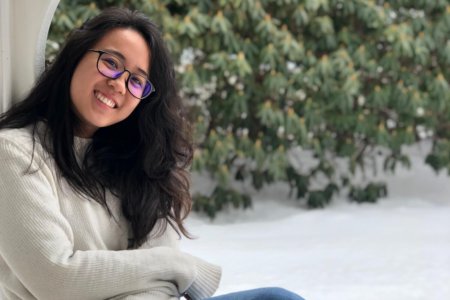
Won-Jae Chang is an 18-year old Princeton student who holds a South Korean passport but has lived abroad his entire life — New York, Virginia, Costa Rica, and Saudi Arabia. He is now beginning his higher education at a prestigious Ivy League school and is undecided between a BA degree in History or Politics.
He is also a columnist for “The Princetonian” where he writes about how there needs to be more support for the diverse communities in higher education institutions and, in particular, for students who are immigrants. “Separation,” Chang says is one of the main challenges international students are facing while stuck abroad due to the virus crisis.
We caught up with Chang to learn more about what he means by this and what life is like as a Princeton student before and after the pandemic hit:
What made you choose to become a Princeton student?
I’m a Princeton student because one of the best things about a US liberal arts education is not having to decide your course of study until a few semesters into your undergraduate experience. I’m currently undecided, but most likely considering history as it’s been a favourite subject of mine forever, and I truly enjoy how they teach history here.
That being said, I would also be keen to explore other majors such as politics, economics, or philosophy. Princeton’s very well-known for its strong programme in the humanities and social sciences, which was what drove me to apply for the “Early Action.” Another reason I chose to be a Princeton student was due to its proximity to New York City and its flexible programme.
What has been your most memorable class as a Princeton student so far — and why?
HIS211 — History of Europe: Antiquity to 1700 — with Professor Anthony Grafton. History often has the impression of being dull or content-heavy, but despite the introductory class which was supposed to survey a long history of Europe, was actually quite fascinating and well-focused.
View this post on Instagram
It involved so many different elements — lectures, textbook readings, primary source readings, and discussions. Although the course had quite a significant number of people overall, it was taught in a tutorial format where we were divided into small precepts.
Even though the class itself was probably huge, I only had five people in my precept which made it easy for me to get involved. I was able to participate in fascinating discussions about our readings.
How have the lecturers supported you in your studies thus far?
I think any time that I’ve had office hours with any of my teachers, upperclassmen, or advisers have been particularly useful. Princeton offers many great resources for academic support, but it’s really up to you as a Princeton student to take advantage of those resources and truly reap their benefits.
Many professors have been accommodating to different time zones, and everyone is so interesting to talk to. I particularly enjoy office hours with Professor Grafton — we seldom talk about history, but rather about life in New York, about the pandemic, and about his career.
Any plans for after graduation?
My hope is to either get into law school or another form of graduate school, but am not sure if that would be in the US or elsewhere.
Walk us through the divide that exists for international students in the US. What challenges do you face and how do you overcome them?
I think that the biggest difficulty that we, as international students face, as of now, is this feeling of separation. Several of us are in our home countries because our classes are fully online and, in large part, due to the time difference.
Often, we have a hard time attending social events or study group sessions. In addition, it’s this constant feeling of uncertainty, we don’t know what can change about our immigration situation at any moment in time.
These challenges are definitely difficult to overcome, but I think the main way I face them is by getting as involved in the community as possible. For instance, I’ve been participating in a lot of extracurriculars on campus because it’s helped with making friends, keeping busy, and overall finding a sense of community as a Princeton student.
It’s always great to befriend a lot of people, because the more you talk to others, the more they get a grasp of your situation and the more they feel sympathetic. In turn, the stronger the community and support become.
Our international community works together in so many different ways, speaking up about our issues to get our message out there and heard. Who knows? Maybe it will make a difference, maybe it won’t — but at least we’re showing everyone that we exist and face these problems. It’s nice to know I’m not alone in the challenges I face.
View this post on Instagram
What do you think could be done better at universities in the US to be more inclusive of international students?
Universities face a lot of difficulties especially during this COVID-19 ridden time, and I think that should be acknowledged first. Finding the balance between safety, academic excellence, and social awareness is a big challenge in itself.
Having said that, it would be nice to feel more supported. Survey the international students, hear our voices more, understand our concerns. Even if we may not be able to change anything, we’d at least love to feel like our voices are being heard.
I think many universities all around are beginning to realise the importance of this, but we need it more consistently. Another thing is to understand the psychological implications of being separated from the rest of the community — many universities have invited students except for the international ones back onto campus. While immigration restrictions are difficult to overcome, it would be nice if universities could provide the support to bring all of their students on campus.
What advice do you have for other international students looking to study in the US?
Don’t be afraid to apply! I know it can seem daunting, but there are so many benefits that studying at a university in the US can give you. From curricular flexibility to the opportunities provided socially, academically and career-wise.
There are also many financial support systems. For instance, as an international Princeton student, your ability to pay won’t affect you. Financial aid is great in many top universities in the US, as are scholarships. There’s always a way, it’s just about finding the best way for you.
Check out some of Chang’s blogs here.










